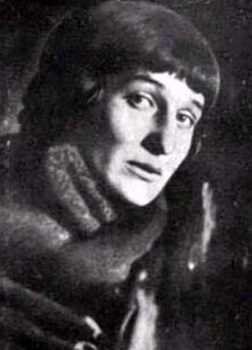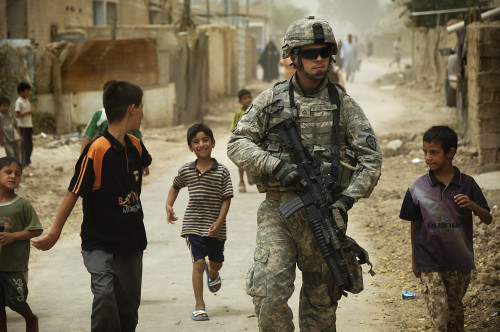Poetry behaves like the physical properties of matter in motion.
Think of a poem as a pulse. In physics a pulse is a disturbance in any kind of environment — the movement of a particle through a closed space is a pulse, the birth of a child is a pulse, a meteor burning in the sky, a gunshot too, a cry in the night, a laugh, a kiss, an abrupt declaration. If a pulse is sharp enough, the disturbance acute and clear, we remember it. The image compressed is a pulse, a gasp of a moment’s revelation or experience. When the pulse of a poem bears witness, it may awaken our conscience, its lines achieving the magnitude of force — the poem strikes our feelings of duty or shame or pity, and it settles its weight on our intellect. We think through the images which trouble our hearts whose pulses have disturbed our well-being.
In one respect, all poems bear witness to an observation shaped by imagination — the dipping glide of one bird on one winter morning, the expression of a child’s face snatching a glance from beneath his father’s arm on a crowded bus, the hiss and purr of conversations within an auditorium.
To witness means to see and not forget. It is the testimony of memory and empathy. Poetry is uniquely qualified to bear witness due to its capacity to be concise and precise, to create sharp-hewn images that stay in our eyes, to craft the memorable phrase. Poetry is built around choices of the exact noun or verb that enhance our capacity to see more and more deeply and thus enhance our depth of pity.
Then to push that moment to its maximum effect, to cut the words with flint and polish them until that pulse becomes a series of pulses, then a current, a wave of feeling and understanding. Thus, the ethereal nature of a poem becomes powerful. It courses through our consciousness, scouring out new channels of understanding and feeling.
A poem’s compression of language provokes an evolution of precision in such a way that the images can then expand beyond their form into whole eco-systems of feeling and meaning.
Paradoxically, our limited, often distracted perspective becomes both more direct in its focus and more elaborate in its compassion. Poetry enlarges point-of-view by simultaneously capturing and releasing us.
 And so captured and released, with Anna Akhmatova, we enter the Soviet Union in “the frightening years of the Yezhov terror”:
And so captured and released, with Anna Akhmatova, we enter the Soviet Union in “the frightening years of the Yezhov terror”:
“It happened like this when only the dead
Were smiling, glad of their release,
That Leningrad hung around its prisons
Like a worthless emblem, flapping its piece.
Shrill and sharp, the steam-whistles sang
Short songs of farewell
To the ranks of convicted, demented by suffering,
As they, in regiments, walked along –
Stars of death stood over us
As innocent Russia squirmed
Under the blood-spattered boots and tyres
Of the black marias.” *
Stalin’s murder-state meant to crush every part of an independent Russian spirit. “Requiem” shows that he did not succeed. Ahkmatova and other poets continued to write, to memorize their work, to smuggle it to the West, to wait through the worst of it, and then to show the truth of what they had seen. Their words cut through the State’s silences and its power to induce fear. The need for poetry to witness such cruelty is eternal. The poetic voice will oppose the beast.
Great poems never remain static. They become larger, and when the right spark applies, they generate power in other places. One cannot read “Requiem” without thinking of the Hanoi Hilton, Abu Ghraib, the Lubyanka, Riker’s Island, the Escuela Superior de Mecanica de la Armada in Argentina at the time of the ‘Dirty War’, or today at the Mangaung Prison in South Africa and on and on.
To witness means to report those matters lost or put aside or ignored: this is what is was like to be on the ground in this place, in this time. In “What Every Soldier Should Know” Brian Turner describes Iraq from the perspective of the American soldier:
“You will hear the RPG coming for you.
Not so the roadside bomb.
There are bombs under the overpasses,
in trash piles, in bricks, in cars.
There are shopping carts with clothes soaked
in foogas, a sticky gel of homemade napalm.
Parachute bombs and artillery shells
sewn into the carcasses of dead farm animals.
Graffiti sprayed onto the overpasses:
I will kell you, American.
Men wearing vests rigged with explosives
walk up, raise their arms and say Inshallah.
There are men who earn eighty dollars
to attack you, five thousand to kill.
Small children who will play with you,
old men with their talk, women who offer chai—
and any one of them
may dance over your body tomorrow.”
U.S Army Pfc. Shane Bordonado patrols Al Asiriyah, Iraq on August 4, 2008. Photo by Spc. Daniel Herrera
We were safely home and were spared these facts and these truths, that death waits in shopping carts, and that those who offer tea and hospitality will also smile at the sight of your body. At 19 or 20, how would you have taken this in? How would you have replied?
To witness means to craft dispatches that incite our second-sight. Read Turner’s entire poem and you will begin to learn what such a ride in a humvee felt like, how the faces in crowds caused soldiers’ guts to contract and their gaze to sharpen, and how common it became to direct every extra human sense to reach out into the roadside, into the next 100 yards, into the future of minute-by-minute threats.
To witness means to acknowledge History’s orbit around our small lives and thus its gravitational power. Therefore, to understand Turner’s poem about combat in Iraq, go back to 9/11 and then to the Persian Gulf War, to the Iran-Iraq War of the 80’s, to the Mid-East rivalry between the Soviet Union and the US during the Cold War, to the creation of Israel, to the Holocaust, to the Allies’ victory in WW I, to the rise of European Colonial powers, to the Crusades, to the Cave of Hira where Muhammad received the visitation of the angel Gabriel, to the great forests of the Carboniferous Age crushed into oil over millions of years. Go back until you find the fuse that carried the spark that ignited the fire that waited in the 21st century for Sergeant Turner on roads deranged by sewage and dead animals.
W.H. Auden understood what happens when History’s primordial power reveals itself:
“Waves of anger and fear
Circulate over the bright
And darkened lands of the earth,
Obsessing our private lives.”**
I do not know if poetry ever rescued a single person. Its power is diffuse, a gust of smoke in wind, but poems can make radiant the lives of individuals within History’s entanglements. They can drive back ignorance and thus darkness. They can say “This you should not forget.” In those three affirmations, there is hope and at least a small, enduring victory for human beings against death and its machinery.
*Akhmatova meant for us to know. From the beginning of Requiem:
Not under foreign skies
Nor under foreign wings protected –
I shared all this with my own people
There, where misfortune had abandoned us.
[1961]
INSTEAD OF A PREFACE
During the frightening years of the Yezhov terror, I spent seventeen months waiting in prison queues in Leningrad. One day, somehow, someone ‘picked me out’. On that occasion there was a woman standing behind me, her lips blue with cold, who, of course, had never in her life heard my name. Jolted out of the torpor characteristic of all of us, she said into my ear (everyone whispered there) – ‘Could one ever describe this?’ And I answered – ‘I can.’ It was then that something like a smile slid across what had previously been just a face.
**from “September 1, 1939”

Sadly, we lump things into categories–things we don’t want to expend the energy needed to understand and appreciate–like opera, posi-traction, and poetry. Rather, we put them away–far from our thoughts, like seasonal items packed in the attic. If only people would try–if they could realize that the music they listen to has meaning (except for maybe the 80s) and not just a catchy beat. If they’d spend more time on the words and less on the rhythm, they may discover something of themselves in the lyrics. While nobody should confuse Led Zeppelin for Langston Hughes, perhaps with a little effort they could begin to unpack some of the boxes stowed in their minds–and hearts.